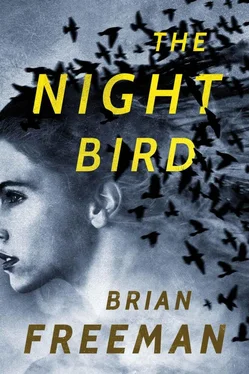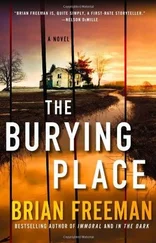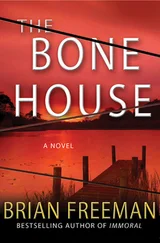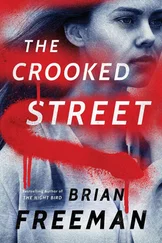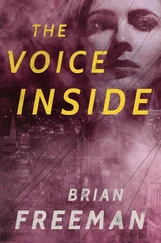“Was Brynn uncomfortable going to the party without you?” Frost asked.
“Brynn was never uncomfortable. She fit in everywhere. The one who was probably uncomfortable at the party was Lucy. She’s sort of a fragile flower. If there was anyone who would go nuts and have some kind of breakdown, I would have put money on her, not Brynn.”
“Your lawyer friend, does he throw parties where drugs are available?”
Tejada shrugged. “Pot? Maybe. Anything harder? Doubtful. And Brynn had no time for drugs of any kind. It wasn’t her scene.”
“That’s what Lucy said, too. And Brynn’s parents.”
“Well, they’re right,” Tejada told him. “I can’t explain what happened to her, but you can rule out drugs.”
Frost wasn’t so sure. People were good at keeping secrets from those close to them, whether it was about affairs, alcohol, or addictions.
“There was a similar incident a couple months ago,” Frost told Tejada. “A woman had a psychotic episode at a wedding reception. She shot herself. Like Brynn, the behavior seemed to come out of nowhere. I’ve been trying to find some overlap in their lives, to see if they had a connection that might explain what happened to both of them. So far, I’ve come up empty.”
Tejada nodded. “I remember that incident from the news. Brynn and I talked about it.”
“What did she say?”
“Just that it was scary and bizarre. We both assumed what you did, that it must be drugs.”
“And did she mention anything that might suggest a connection between the two of them?”
“I’m sorry. No.”
“The thing is, Mr. Tejada, this behavior usually has an explanation, but friends and family often miss the clues. Then they look back and remember little things that seem important in the wake of what happened. Was there anything like that with Brynn?”
Tejada was silent for a long time. He crossed his arms and stared at his shoes. Lawyers didn’t give flip answers. Frost knew that because he had a law degree himself. He’d also worked with a lot of lawyers in his years with the police, and if there was one thing he liked about them (among the many things he didn’t), it was that they never answered a question without thinking about it.
Finally, Tejada said one word, but it was something that Frost didn’t expect.
“Cats,” he said.
Frost cocked his head. “What?”
“Do you like cats, Inspector?”
“I do, in fact,” Frost replied.
“So do I. I have four cats.”
“Okay,” Frost said, not understanding.
“Brynn was scared to death of cats,” Tejada went on. “When I first met her, she couldn’t spend five minutes in my condo. She hated cats, couldn’t stand being around them. People who don’t grow up around cats often don’t understand them, but this was a deeper phobia with Brynn. When I asked her about it, she told me that she’d had a bad experience with a feral cat as a teenager. She was bitten multiple times. She had to undergo a painful round of rabies shots.”
“I don’t understand the connection,” Frost said.
“You wanted clues, Inspector. You wanted something unusual. This is the only unusual thing I can think of.”
“That Brynn was scared of cats?”
Tejada shook his head. “No, here’s the strange thing. The two of us typically met at restaurants, not at my place, because of my cats. If we wanted to be together overnight, I’d get us a hotel room. And then, last month, she showed up at my place on a Saturday afternoon. I went to open some wine for us, and when I came back, I found her sprawled on the living room floor, playing with my cats and letting them walk all over her. Since that time, she hasn’t had any issues with my cats at all.”
“Did you ask her about it?”
“Of course. She said she didn’t want my cats to be a problem between us, so she’d been seeing a psychiatrist to help with her fears.”
“Apparently, it worked,” Frost said.
“Yes, I guess it did. I was glad she felt strongly enough about our relationship to do something like that. But there was one peculiar thing. Last week, I made some kind of joking reference to the time when the feral cat had bitten her. She seemed genuinely puzzled — she said nothing like that had ever happened to her. I began rattling off the details of the story, but she got upset and said I was wrong and told me to drop it.”
“Did you?”
Tejada frowned. “Sure, I did. I was glad she’d become a cat lover. But I wasn’t wrong, Inspector. The cat attack really happened to her. At first, I assumed she didn’t want to think about it anymore, but it was more than that. It was as if the whole episode had been completely erased from her memory.”
Frankie kept one sympathy card on her desk from the death of her father. She’d filed away all of the others weeks ago. It wasn’t even a card from a close friend, because Frankie didn’t have many people that she considered friends. The woman who sent it was a colleague from a nonprofit board. Frankie kept the card because it was a reminder of how wrong people could be.
Inside, the woman had written
My father was the greatest hero in my life. I know what you’re going through.
If only that were true. People assumed that when you lost a parent, you felt nothing but pure grief. They didn’t account for complex relationships. And the relationship between Marvin Stein and his daughters was nothing if not complex.
She kept a photo of her father on her desk. When she picked it up, she could hear his cold voice in her head, passionless and demanding. The photo showed him in his physics lab at UC Berkeley, in his white lab coat. Like her, he was tall and thin. He had wiry gray hair and a neat mustache. He didn’t smile, and his eyes were impatient. Her father never liked to bother with emotional frills like photographs. When Frankie took the picture with her phone, he’d said, “Get on with it, get on with it.”
Her mother had died of cancer when Frankie was five, just a year after her sister, Pam, was born. Since then, their family had been just the three of them. Marvin Stein, physicist, was not meant to be a single father. He dealt with numbers, theories, and formulas, not children. And definitely not girls.
It was hard enough when they were young, but it got worse during high school and college. Their father demanded perfection. Anything but straight As and top test scores was a failure. Because he was a success himself, he pushed his daughters to do more and achieve more. Nothing was ever good enough. Frankie responded by setting crazy expectations for herself that might win his praise. Pam responded by defying him altogether and throwing her failures in his face.
And now he was gone. More than three months later, he still haunted her.
“Are you thinking about Marvin again?” Jason asked.
Her husband stood in the doorway of her office. He was dressed in running clothes, and his hands were on his hips. Sweat glowed on his narrow face.
“Yes, I keep thinking about that last camping trip,” she said, toying with the photograph of her father with her fingertips.
“Dwelling on it won’t change what happened,” Jason told her.
“Oh, I know.”
Jason sat in the comfortable chair in front of her desk. He worked in the headquarters of a large pharmaceutical company a few blocks away on Post Street, but he often went running through the city midway through the afternoon and showed up at her office while she was on a break between appointments. Her own office was located on the top floor of a ten-story building on the east side of Union Square, looking out on the palm trees of the park.
“It’s also not going to change what a son of a bitch Marvin was,” Jason added.
Читать дальше
